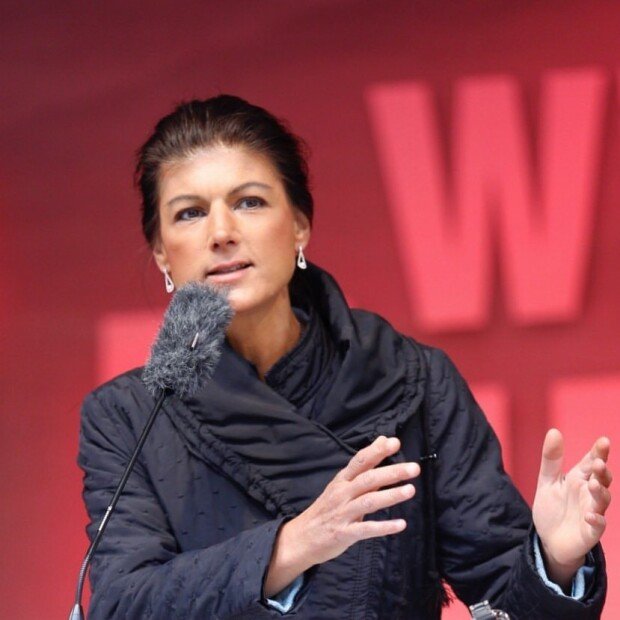Sahra Wagenknecht drives German far-left party’s win
Sahra Wagenknecht drives German far-left party’s win
Posted September. 03, 2024 07:59,
Updated September. 03, 2024 07:59

In contrast to the recent rise of the far right across Europe, Germany’s local elections on Sunday saw the unusual result of the far-left camp’s win. At its center is socialist politician Sahra Wagenknecht, who has been dubbed a “mutant” in German politics for her anti-establishment, anti-immigration, and anti-Western values that cross the boundaries between the left and the right.
The Bundnis Sahra Wagenknecht (BSW), which she founded in January this year, won between 11 and 15 percent of the vote in Sunday's local elections in two former East German states. According to the BBC, Wagenknecht’s BSW ranked third in both local elections in Thuringia and Saxony, establishing itself as a casting voter.
Wagenknecht was originally a “fighter-like” national star politician with a stoic image. She criticized the ruling coalition, which is composed of the Social Democratic Party and Green Party, by calling them “a ‘lifestyle left’ that tries to teach ideas that don’t make economic sense.” She gained attention in 2015 when she rebelled against the Angela Merkel administration’s refugee policy. In her view, a degree of social homogeneity is essential to establish a welfare state.
She has also been outspoken in her opposition to the far-right Alternative for Germany (AfD) Party, which has recently swept the country, saying she is “against Nazism.” “The ‘real alternative’ for the marginalized working class is not the AfD but myself,” she said in a recent interview with Politico Europe. The far-right AfD’s expansion has been steep, with 32.8 percent of the vote won in Thuringia and 30.6 percent in Saxony, second only to former Chancellor Merkel’s Christian Democratic Party with 31.9 percent.
The fact that both the far-right and far-left parties are gaining support in Germany is a sign of the deep dissatisfaction with the ruling coalition led by Chancellor Olaf Scholz. In the latest election, which is seen as an indicator of public sentiment ahead of Germany’s general elections in September next year, nearly half of voters chose either Wagenknecht’s far-left party or the far-right AfD.
이지윤 기자 asap@donga.com
Headline News
- Joint investigation headquarters asks Yoon to appear at the investigation office
- KDIC colonel: Cable ties and hoods to control NEC staff were prepared
- Results of real estate development diverged by accessibility to Gangnam
- New budget proposal reflecting Trump’s demand rejected
- Son Heung-min scores winning corner kick







